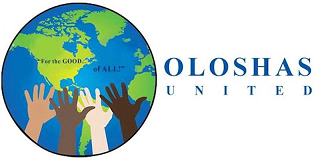Oloshas United responds to the Church of Jesus Christ of Latter-day Saints’, The Deseret News article on Santería
April 18, 2016
Dear Editor,
I am writing about the article on Santeria written by Jerry Earl Johnston on April 9, 2016. (http://www.deseretnews.com/article/865651870/Is-animal-sacrifice-a-religious-right.html)
I believe Mr. Johnston has been misinformed about our practice of animal sacrifice. His use of adjectives like “stark” and “brutal” reflect a negative, judgmental tone. In certain ceremonies, it’s true that we sacrifice birds (roosters, hens, doves) and occasionally a goat, but are you aware that we usually eat the animal in a communal meal after we kill it? We don’t sacrifice animals on a frequent basis or in mass quantities. When we do sacrifice an animal, it’s for a very serious and important reason. The person who is offering the animal thanks the animal for giving its life, we say prayers and bless the animal, the animal is not tortured or mistreated before it’s sacrificed, and when it’s killed, it’s by a person who has been trained, who knows how to do it swiftly, causing the least amount of suffering. The priest cuts the animal’s carotid artery with a very sharp knife in one quick and steady movement. The animal dies instantly. Can you say that slaughterhouses, where commercial meat processing is done, have the same regard for animals?
Most people in the USA eat meat. They buy it at the supermarket, and don’t think about where it comes from, or how it gets on the table. Commercial butchers who kill the animals that end up on our dinner table aren’t accused of torture. Why is religious sacrifice of an animal regarded as more perverse and threatening? We’re feeding our bodies with food we make sacred by praying over it. We’re aware that the animal has given its life for us, and we’re grateful. We understand that there’s an exchange of sacred energy when an animal dies on our behalf so that we can live. Perhaps that’s a foreign concept to some people, but it’s certainly not an inhumane way to think about food production.
In our religion, animal sacrifice is not a public spectacle. It’s done in a private space, with initiated priests and priestesses in charge. Our religion doesn’t represent a threat of any kind to mainstream American society, as Mr. Johnston claims. We don’t try to convert anyone to our religion, we don’t impose our religion on anyone, and we do harm to no one. We believe in religious freedom, and we’re respectful and tolerant of people whose belief systems differ from our own. We ask that people extend the same respect and tolerance toward us.
Religious freedom is an important constitutional right we must all defend. The Supreme Court recognizes us as a religion and guarantees that we have the same civil liberties as everyone in this country. When Mr. Johnston questions whether or not the constitution stretches to include us, he’s opening the door to a very dangerous idea. If the constitution doesn’t protect us, how can it protect you? If you deny us our religious freedom today, will someone deny you yours tomorrow?
The flippant reference to sacrificing Aztec virgins at the end of the article is totally uncalled for, and disrespectful. We have never sacrificed human beings, nor would we. Our practices follow ritual protocol. No one will suddenly decide to sacrifice a horse or a kangaroo. This kind of speculation just reduces the article to nonsense. As professional journalists, you have the responsibility of presenting the facts correctly, and you shouldn’t suggest that an entire group of people be denied their constitutional rights just because their religious practices seem strange to you.
On behalf of Oloshas United, an international organization with thousands of members, we ask that you refrain from publishing articles in the future that misrepresent our religion and spread false ideas about us. If you have questions and want to know more about our religion, we have a board of advisors and consultants who can help you. Many of us have PhDs and other advanced degrees. We are professional, respectful people, who deserve to be treated as any other American citizen.
Thank you for the opportunity to express our point of view and educate your readers a bit more about our religion.
